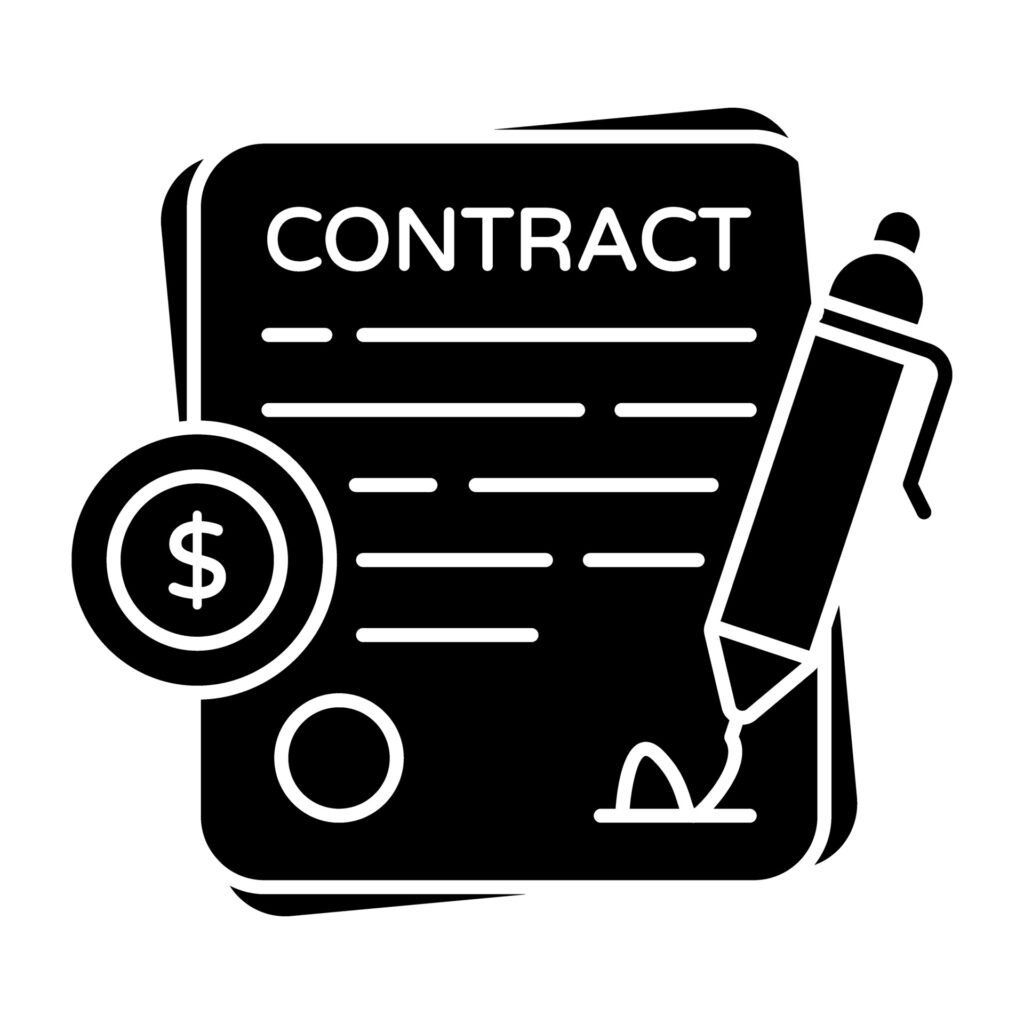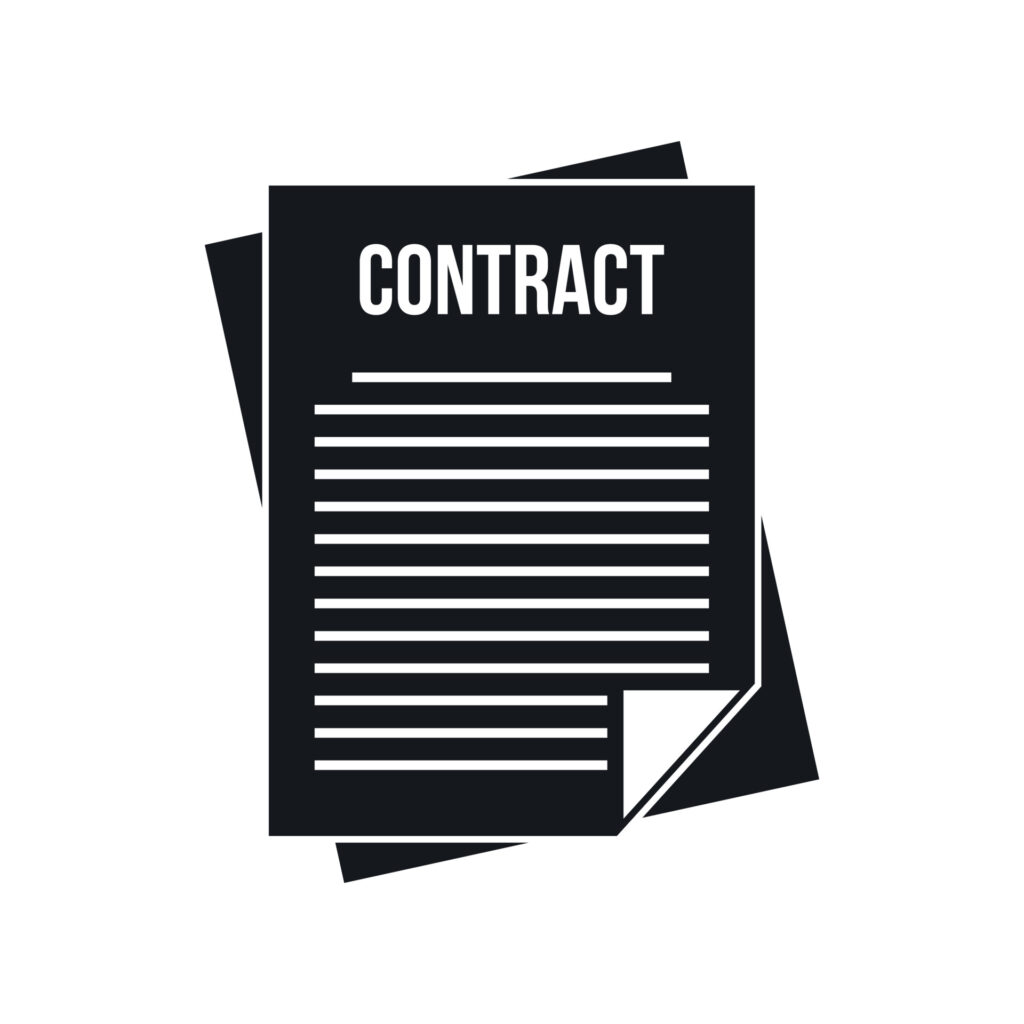What is a vendor contract? Learn what they are, why they matter, and how to draft, negotiate, and manage them like a pro. Avoid hidden pitfalls in vendor contracts that can end up costing you way much more money than you bargained for!
Have you ver signed a contract and later thought, What did I just agree to? Yep, me too. That’s why understanding what is a vendor contract is essential for small business owners.
These contracts might seem like just another piece of paperwork, but let me tell you—they can make or break your business relationships.
In this article, we’ll break down vendor contracts, their importance, and how to avoid costly mistakes. By the end, you’ll feel more confident tackling your next agreement like a seasoned pro.
What is a Vendor Contract?

Let’s start with the basics. A vendor contract is a legally binding agreement between your business and a supplier or service provider.
Whether you’re hiring a caterer for an event or purchasing materials for your construction project, this document lays out the terms of the relationship.
Think of it as your safety net—it defines who does what, when, and at what cost. Without one, you’re basically winging it, which is risky business.
Note that you could be the one requesting your vendors to sign vendor contracts, or you could be the one being asked to sign a vendor or service contract by a vendor.
Whichever way, read the fine print carefully if you have to sign a contract, or ensure that all necessary essentials are in your contract for the vendor.
Why a Small Business Vendor Contract Matters
Having a clear vendor contract is not just about staying legal—it’s about protecting your interests. They are a must-have to ensure the following:
- Clarity: They spell out expectations for both parties. No more “he said, she said” scenarios.
- Risk Reduction: Avoid potential vendor contract disputes by having everything in writing.
- Cost Control: Terms like payment schedules and penalties for late delivery keep everyone accountable.
- Flexibility: Need to make changes without legal consequences? You can learn how to amend a vendor contract easily if it’s properly written.
Key Elements of a Simple Vendor Agreement
Not all contracts are created equal, but the good ones usually include these essentials:
- Scope of Work: What exactly is being delivered? Be specific.
- Payment Terms: When, how much, and by what method?
- Deadlines: Missed deadlines can derail your plans, so include clear dates.
- Termination Clause: What happens if someone wants out early?
- Dispute Resolution: How will issues like vendor contract disputes be handled?
Pro Tip: Use a vendor contract checklist to ensure you’re not missing any critical details.

4 Common Mistakes to Avoid
This is where things can get real – and sometimes overwhelming. Mistakes in vendor contracts can cost you time, money, and your reputation. Avoid these rookie errors:
Skipping the Fine Print
Do not just skim the contract—actually read it!!!. Trust me, that’s where the devil hides. Look out for hidden fees, vague terms, or clauses that might backfire and seek clarifications to better understand them.
Overlooking Legal Advice
Think you don’t need a lawyer? Think again. Having an expert review the legal implications of vendor contracts could save you from headaches down the road. A “gentleman’s handshake” will NOT work!
Ignoring Renewal Terms
Some contracts auto-renew, which can be great—or a nightmare. Know the rules around renewing vendor contracts so you are not locked into something unwanted.
Forgetting to Review Contracts Regularly
Vendor relationships change, and so should your contracts. Set reminders to review them periodically.
How to Draft and Negotiate Vendor Contracts – 7 Tips
Drafting Tips for What is a Vendor Contract?
Use clear language: Avoid jargon and legalese. If you do not understand it, certainly, neither will your vendor!
Be thorough: Include all key elements like vendor performance contracts or service agreements if applicable.
Plan for the worst: Ensure that you add provisions for termination, delays, or breaches.
Negotiating Tips for What is a Vendor Contract?
Know Your Limits: Before sitting down to negotiate, decide what is non-negotiable. This puts you in a position of strength because you have already decided how far you will go upfront and will not risk being boxed into compromising a “no-go” area.
Stay Polite but Firm: You want a win-win situation and not a battle, so keep the conversation cordial.

Ask Questions: If something seems confusing, speak up. For example, “Can we clarify this clause about penalties for delays?” Ensure that you undersatnd every single clause in the contract.
Pro Tip: Familiarize yourself with common vendor contract clauses so that you are not caught off guard.
Managing Vendor Contracts Like a Pro
Okay, so now, you’ve signed the dotted line with your vendor, what’s next? Managing contracts is just as important as drafting them.
- Keep Everything Organized
Use vendor contract management tools to track deadlines, payments, and performance. It’s like having a digital assistant for your paperwork. - Monitor Vendor Performance
Check if your vendor is meeting their obligations under the vendor service agreements. If not, don’t hesitate to address it. - Document Everything
If issues arise, having a paper trail will make resolving vendor contract disputes much easier.
Conclusion – What is a Vendor Contract?
Understanding what is a vendor contract and how to handle it does not have to be intimidating. By learning the ropes, you will avoid costly mistakes and build stronger relationships with your vendors.
From drafting solid agreements to managing them effectively, a little effort upfront can save you a ton of grief later.
So, the next time you’re faced with a vendor contract, don’t panic. Use this guide, trust your gut, and tackle it head-on. If you require assisstance with this to get it done efficiently in a timely manner, contact BCINC TODAY!
Related Article
- How to Fix 9 Overlooked Challenges in Small Business
- Why Do Customers Leave Your Business? – 6 Hidden Reasons
FAQs for What is a Vendor Contract?
What should I include in a vendor contract?
A vendor contract should include the scope of work, payment terms, deadlines, and clauses for termination and dispute resolution.
Can I negotiate vendor contracts myself?
Absolutely! Understanding your needs and being clear about them can lead to a better deal for both parties.
What happens if a vendor breaches the contract?
If a vendor fails to meet their obligations, refer to the dispute resolution or termination clauses. Consult legal advice if needed.
How often should I review vendor contracts?
Review your contracts at least annually, or whenever there’s a change in your business needs or the vendor relationship.
Can I terminate a vendor contract early?
Yes, but check the termination clause in your contract to ensure you follow the agreed-upon terms.
References
Okedara, J (2024) Vendor Negotiation: How to Negotiate with Vendors in 6 Steps https://www.bluecart.com/blog/vendor-negotiation
